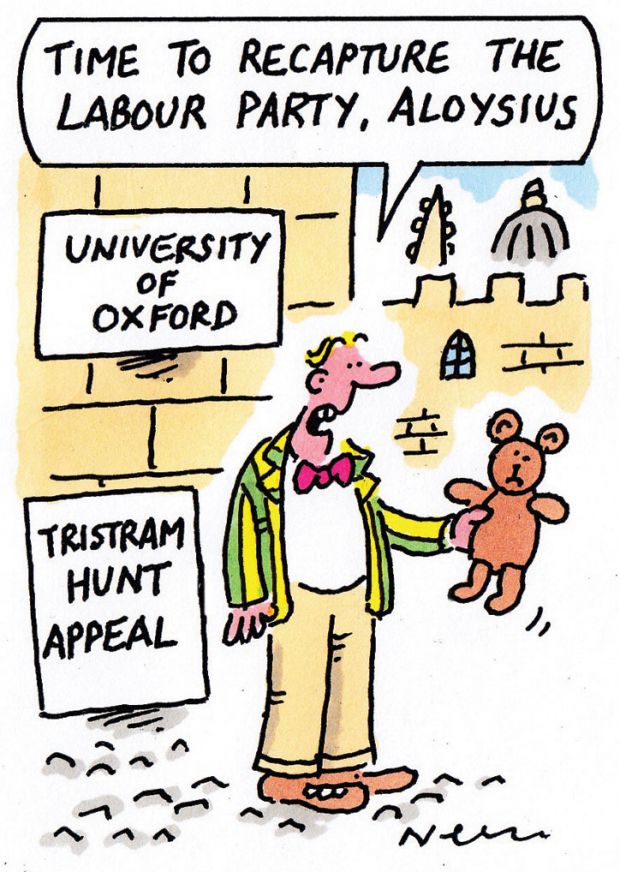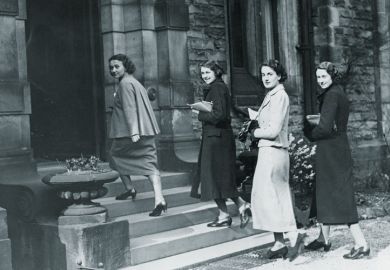
Guardian columnist Owen Jones leaped to the defence of redbrick graduates now supposedly dominating Jeremy Corbyn’s shadow cabinet. The journalist objected to a recent article on Labour’s “brain transplant” under its new leader in The Spectator and to Tristram Hunt’s appeal to University of Cambridge students – whom he called the “top 1 per cent” – to recapture the Labour Party. Mr Jones, a University of Oxford graduate, said the dominance of Oxbridge in politics was not good for democracy. “We need far more balance – including from redbrick universities…and those who haven’t been to university in the first place,” he added. That message has not permeated The Guardian itself, where, Mr Jones said, many staff are drawn from the two institutions.
“Would you send your children to one of these colleges?” That was the question from James O’Brien, host of BBC Two’s Newsnight, to Jo Johnson, the universities and science minister, on 6 November as he highlighted recent scandals about for-profit institutions of dubious quality benefiting from public funding, and questioned the minister about the higher education Green Paper. It brought an uncomfortable three-second silence from Mr Johnson as he worked out how best to answer. “Where there’s high-quality education, we should be encouraging people to go to university,” was what he eventually managed. “I can’t work out whether that’s a ‘yes’ or a ‘no’, Jo,” responded Mr O’Brien. “There are lots of routes in life,” countered the minister. The Huffington Post described the exchange as “cringe-worthy”.
More awkward questions elsewhere – specifically for the Higher Education Funding Council for England and the Office for Fair Access on how to comment on a Green Paper that spells the end of their existence. Madeleine Atkins, Hefce’s chief executive, went for euphemism in saying the organisation would “look forward to contributing to the debates and developments it will foster”. Les Ebdon welcomed the Green Paper’s “proposal that the director of fair access should play a specific and strengthened role within the proposed new Office for Students”. Given that Professor Ebdon is the director of fair access, it’s no surprise that he welcomed the prospect of his continued employment. Other staff in the two bodies will also be hoping to keep their jobs if the OfS is born, a hope that will be shared by many in the sector.
A students’ union officer accused of tweeting “#killallwhitemen” will not face prosecution, The Times reported on 4 November. Bahar Mustafa, a diversity officer at Goldsmiths, University of London, was charged with sending a grossly offensive message via a public communication network, but the case was dropped shortly before she was due in court. The allegations against Ms Mustafa, which she denied, surfaced after she said in a Facebook posting that white people and men of any ethnicity should not attend a students’ union event intended for ethnic minority women. She had claimed that as an ethnic minority woman, she “cannot be racist or sexist towards white men, because racism and sexism describe structures of privilege based on race or gender”. Mike Schwarz, her solicitor, told The Guardian that the Crown Prosecution Service’s handling of the case “calls into question their ability to make sensible judgments on delicate issues” around free speech.
Rather more damagingly for Oxford, it was also under the microscope after it was urged to review its decision to accept a £75 million donation from Russian “oligarch” Len Blavatnik, Britain’s richest man, to create the Blavatnik School of Government. Signatories to a letter to The Guardian on 3 November urged Oxford to “stop selling its reputation and prestige to Putin’s associates”, arguing that in 2008 and 2009 a large number of BP’s workforce in Russia was “forced out” in a dispute between the company and a group of Russian billionaires, among them Mr Blavatnik. The letter attracted widespread media coverage and prompted Observer columnist Nick Cohen to write on 8 November that “when universities take millions from Russian oligarchs or Saudi theocrats they are doing what the Conservatives want them to do: relieving the burden on the taxpayer by establishing a public-private partnership”.
Register to continue
Why register?
- Registration is free and only takes a moment
- Once registered, you can read 3 articles a month
- Sign up for our newsletter
Subscribe
Or subscribe for unlimited access to:
- Unlimited access to news, views, insights & reviews
- Digital editions
- Digital access to THE’s university and college rankings analysis
Already registered or a current subscriber?




